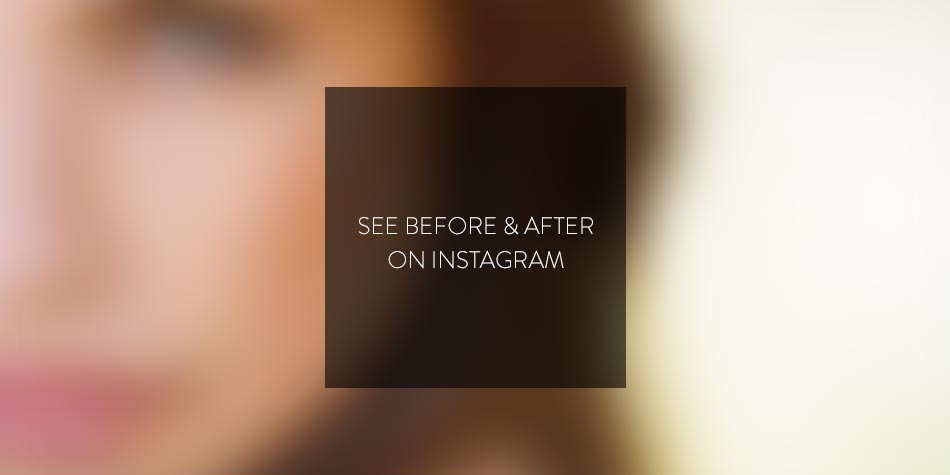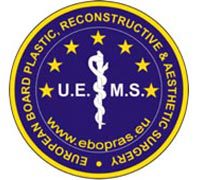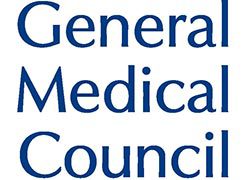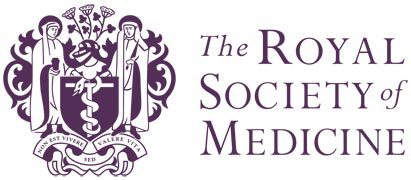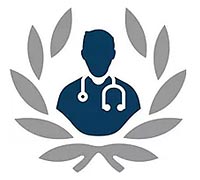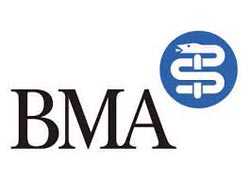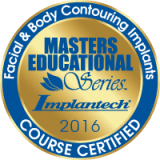Scar Revision
Using a variety of techniques, plastic surgery can help improve the appearance of scars, making them less obvious in appearance through scar revision surgery.
Why scar revision surgery?
If you have a scar caused by an accident, acne, surgery or a burn, you may experience discomfort or a lack of confidence, particularly if the scar is in a prominent place on your face or body. Scar surgery can lessen their appearance, helping you to feel more comfortable in your own skin.
- Read More
WHAT CAN SCAR REMOVAL SURGERY ACHIEVE?
-
Make scars caused by burns or other accidents less noticeable
-
Make keloids less noticeable
IS THERE AN ALTERNATIVE TO SCAR REVISION SURGERY?
Creams and injections can also be used to lessen the appearance of scars, your surgeon will be able to advise on the most appropriate treatment(s) for your individual circumstances.
WHAT TO EXPECT BEFORE YOUR SCAR REMOVAL SURGERY
It’s incredibly important to establish good communications with your surgeon so that you feel as relaxed and comfortable as possible before, during and after surgery. This process will begin with your consultation when you will be able to talk with Dr Cotrufo about your personal circumstances.
DURING YOUR SCAR REVISION CONSULTATION, YOU WILL:
-
Talk through your reasons for seeking scar revision
-
Learn more about the options open to you
-
Discuss the procedure and pose questions to Dr Cotrufo
-
Find out about preparation and aftercare
-
Have a full health evaluation
-
Have an assessment of your scar(s)
-
Talk about timescales and costs
To ensure you are in the best possible health as your surgery approaches, you may be asked to make some small changes to your day-to-day life such as avoiding particular activities or medications.
This may include:
-
Undergoing blood tests and medical tests
-
Stopping smoking
-
Adjusting or taking certain medications
-
Avoiding aspirin, herbal supplements and anti-inflammatory drugs
-
Refraining from drinking alcohol
-
Avoiding sun overexposure, particular to the area for revision
-
Committing not to make stringent changes to your diet
If a general anaesthetic is to be used, you’ll be given fasting instructions to follow.
SCAR REVISION PROCEDURES
-
Scar revision surgery generally takes between 30 minutes to an hour depending on the extent of the work required and the number of procedures being carried out at once
-
The type of scar will decide the process required for scar revision
-
Contracture type surgery generally involves removing scar tissue entirely
-
Keloids tend to be treated with steroid injections, though a skin graft may also be used
-
A course of steroid injections is also the usual treatment for hypertrophic scars, though stubborn scarring may also require surgery
-
Facial scar revision may involve cutting out the scarred area and closing with tiny sutures, though laser scar surgery may also be performed
-
Serious scarring is often treated with skin graft or flap surgery with skin moved from another part of the body to cover the affected area, depending on the severity, several procedures may be required
AFTER YOUR SCAR REVISION SURGERY
You may be required to stay overnight after scar revision. The length of your stay in the clinic will be determined by the process used.
After that:
-
Your exact healing process will vary according to which procedure(s) you have undergone
-
You should start walking as soon as you feel able
-
Generally, swelling and bruising will subside around 7-14 days after surgery
-
You will need to keep your wound area dry and it may need to be covered with bandages or other support for some time
-
Any sutures will usually be removed 7-14 days after surgery
-
Saunas, steam baths and sunbathing will need to be avoided for several months
-
All strenuous exercise including heavy lifting should be avoided for around 1 month
-
You should omit hot and spicy foods from your diet for a period of around 1 month
-
Scars may take upwards of six months to settle and fade
-
You will attend aftercare appointments with Dr Cotrufo, who will also be available to discuss your progress via telephone should you require any advice during the healing period
STILL HAVE QUESTIONS ABOUT SCAR REVISION?
Choosing to have scar revision or scar surgery is a very personal decision, so it’s only natural you will have questions about the procedures open to you and what they involve. Dr Stefano Cotrufo is a plastic surgery and reconstructive microsurgery expert who has worked in some of the leading plastic surgery hospitals in the world. Should you want to discuss your suitability for scar revision or talk about the care you can expect to receive before, during and after your treatment at our clinic, please call 0207 873 2330 to organise a personal consultation.
Mole Removal
Moles and other common skin abnormalities such as skin tags can be removed using one of several surgical or non-surgical procedures. Mole removal surgery and laser mole removal are among the most common minor surgeries carried out.
Why choose mole removal?
Individuals choose mole removal for very personal reasons. Skin lesions of any kind can cause discomfort and in some cases embarrassment and removal can therefore boost comfort and confidence.
- Read More
WHAT CAN MOLE REMOVAL ACHIEVE?
-
Reduce discomfort and irritation caused by clothing rubbing
-
Give a more balanced skin tone
-
Help boost confidence
IS THERE AN ALTERNATIVE TO MOLE REMOVAL SURGERY?
The surgeon will always examine the skin carefully to assess suitability for a mole removal procedure and if the mole, cyst or skin tag is suitable he will recommend the most suited surgical or non-surgical option.
WHAT TO EXPECT BEFORE YOUR MOLE REMOVAL PROCEDURE
No matter how small or simple the procedure, it is exceedingly important that you feel as happy and comfortable throughout the process and establishing good communications with your surgeon is therefore vital. This will begin in your consultation when you will be able to talk directly to Dr Cotrufo.
DURING YOUR CONSULTATION, YOU WILL:
-
Explain your individual circumstances to the surgeon, including why you are seeking surgery
-
Learn more about mole removal surgery and the other options open to you
-
Have a full health evaluation
-
Undergo a skin assessment
-
Discuss the process before, during and after treatment, including aftercare
-
Be able to ask questions
-
Learn about timescales and costs
As your surgery approaches, you may be asked to make some small lifestyle changes and asked to avoid particular activities and medications.
This may include:
-
Taking a blood test or other medical tests
-
Stopping smoking
-
Adjusting or taking certain medications
-
Avoiding aspirin, herbal supplements and anti-inflammatory drugs
-
Refraining from drinking alcohol
-
Avoiding sun overexposure, particular to the area in question
-
Committing not to make stringent changes to your diet
Mole removal is usually performed under a local anaesthetic, however, if a general anaesthetic is to be used during surgery you will be required to follow fasting instructions given by the surgeon.
MOLE REMOVAL PROCEDURES
-
The time required for mole removal surgery will depend on the process used, the number of procedures carried out at once and the type of anaesthesia used but is generally under 1 hour
-
With laser mole removal, thermal energy is used to break down the mole and any unwanted hair
-
Some moles are cut away using small incisions that are closed with tiny sutures
-
Moles can also be shaved away
AFTER YOUR MOLE REMOVAL SURGERY:
You should be able to return home not long after the procedure, though the skin around the removal area will be sore for several days.
After that:
-
You should follow the wound dressing advice given to you by the clinic team, this will vary by procedure
-
Redness should begin to subside 2-3 weeks after the procedure
-
You may need to reduce exercise for up to 3 weeks. If you’ve had a facial mole removal you will need to avoid using makeup
-
Once healed, you should use a high protection factor sun cream on the area for at least 6 months
-
You should avoid sunbathing, saunas and steam rooms for several months
-
Your surgeon will be able to advise when you can begin using creams or moisturising lotions on the area
-
You will need to attend aftercare appointments with Dr Cotrufo, who will also be able to answer queries during your recovery period
STILL HAVE QUESTIONS ABOUT MOLE REMOVAL SURGERY?
Dr Stefano Cotrufo is a plastic surgery and reconstructive microsurgery expert who has extensive experience of carrying out surgeries large and small in some of the leading plastic surgery hospitals. If you would like to discuss your suitability for mole removal surgery or the removal of other skin lesions, as well as the care you can expect to receive at our clinic, please call 0207 873 2330 to book a personal consultation.
© 2023 Dr Stefano Cotrufo | All rights reserved
© 2023 Dr Stefano Cotrufo | All rights reserved
